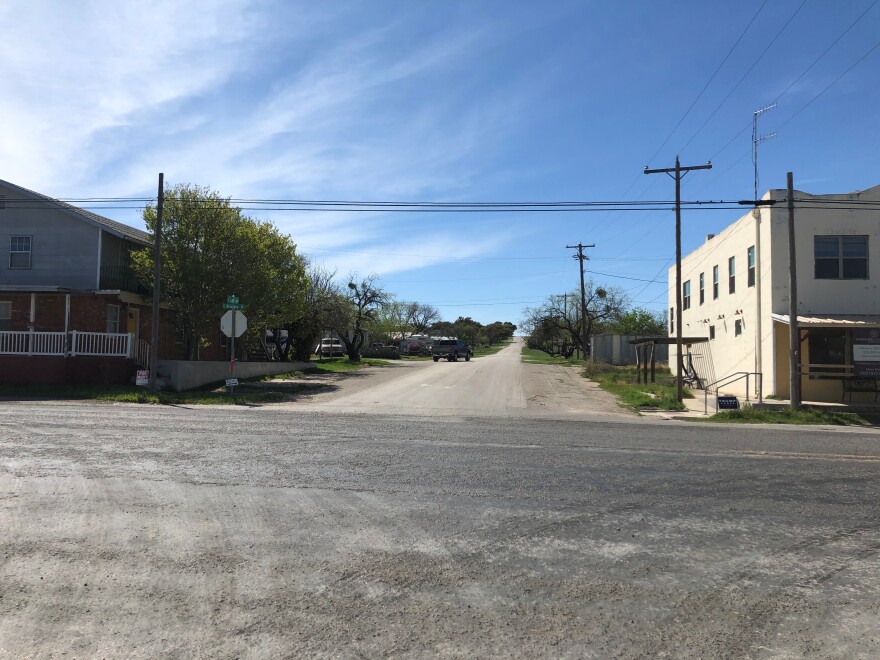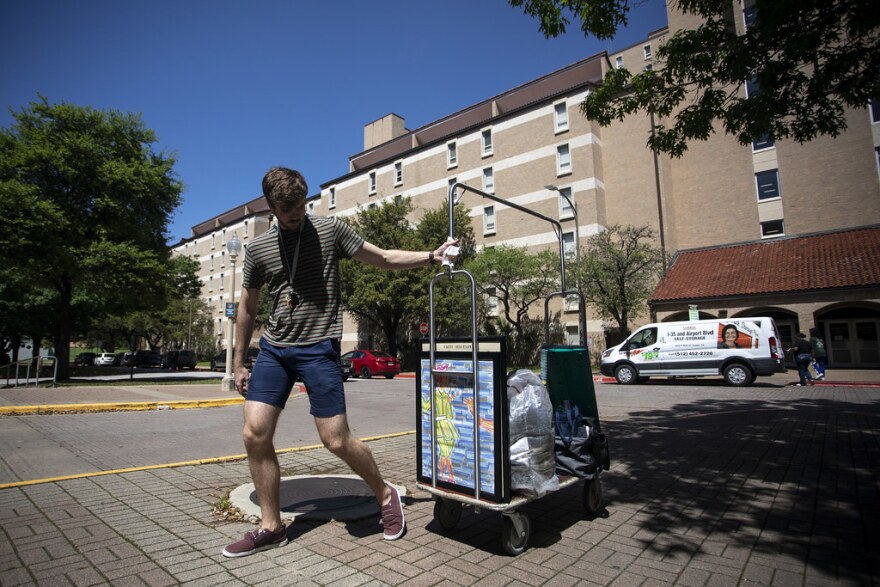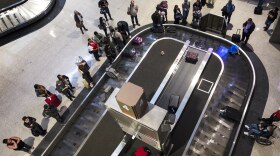Andrew Dareing is from Mertzon, Texas – a town with 743 people, where the only stoplight is a four-way blinking yellow light.
“There’s not enough through traffic to warrant stopping at an intersection. There’s really just the highway and a few roads intersecting with it,” the 19-year-old said. Until recently, Dareing was living in a much bigger city – Austin – finishing his first year as a student at UT.
But when UT closed its campus two weeks ago to help prevent the spread of COVID-19, Dareing decided to move out of his dorm room and back to Mertzon, a four-hour drive west.
He was disappointed; his first year of college had been cut short. But he was also worried about how he was expected to finish classes online.

“I live in the middle of nowhere,” Dareing said. “Broadband internet access is pretty poor. ... It’s difficult to just stream a TV show, so I don’t know how I’m going to be able to stream 17 classmates at once if we’re going to do discussion groups.”
UT says it has heard from roughly 250 students who are concerned about participating in online classes because of technological barriers, including internet access.
“If it’s a student living in a rural area, [we’re] making sure they have the ability to purchase a hotspot or Wi-Fi extender,” which boosts an existing signal, said Kelly Soucy, director of Student Emergency Services at UT.
Half of UT Austin students who are Texans come from a rural county, according to an analysis of data from the university and the Office of Rural Health Policy. This is in a state where a third of people living in rural communities are without a reliable high-speed internet connection.
Until a couple days ago, UT sophomore María Rodriguez had been using her phone as a hotspot to access the internet from her parent’s house in Calvert, about a 40-minute drive from College Station. The town has a little over 1,200 residents, and the locals call the Family Dollar store their “little mall.”

“I grew up in this town pretty much my entire life,” Rodriguez said. “The atmosphere, it’s very different compared to Austin.”
Rodriguez was worried about participating in classes via Zoom, especially because using her phone as a hotspot quickly ate up her available data. But before classes restarted Monday she realized she could download the Zoom app onto her phone and has been participating in classes that way.
Both Rodriguez and Dareing said professors have reached out to their entire classes, asking about students’ access to internet and a computer. Some have offered to tape classes, allowing students to log in at a later time to watch.
“People are being creative and troubleshooting as best they can knowing that every one of our students is having a difficult time right now,” Soucy said.

“I’ve managed to make it work,” Rodriguez said. “I just hope it continues to.”
Soucy said UT has also heard from students who need to buy software for classes and others who need additional hardware. She said the university is working to reimburse students, using cash from the Student Emergency Fund; in the past, awards have averaged anywhere from $25 to $300.
To be reimbursed, Soucy said, a student needs to demonstrate need, such as having qualified for financial aid.
That includes Dareing, who attends UT with the help of a Pell Grant, federal aid awarded to low-income university students. In his home county, Irion County, federal data estimates that roughly 32% of residents live without high-speed internet.
He's been faring much the same as Rodriguez – making it work, most of the time.
When Dareing moved out of his dorm last week, he and his mom decided he would self-quarantine at home for 14 days. His grandparents live on the same plot of land, and they wanted to make sure he wasn’t carrying the virus before getting physically close to them.
He’s been living in a shed next to his mom’s house, a structure typically used for the family’s laundry.
“It’s hard to function and be self-sufficient when I’m trying not to touch any surfaces,” he said.
But the Wi-Fi is even worse in the shed, so Dareing has been coming into the main house to participate in class from his childhood bedroom. So far, the connection has been OK. On Tuesday, he entered a Zoom meeting for a world literature class, but in a matter of minutes the screen froze and kicked him out.
“It’s just so hard to tell when you know it’ll work,” Dareing said, adding that something like bad weather can often derail the connection.
Dareing said he’s been talking with UT about getting a hotspot or a Wi-Fi extender – although he said cell service is so bad in Mertzon he wonders if it will be helpful.
If the Wi-Fi gives him trouble, Dareing said he might drive to the local public high school, where his mom works as a counselor. The school is closed now, but Dareing said he could get in to use the school’s internet.
“The thing about our Wi-Fi is that it has its good days and its bad days,” he said.
Got a tip? Email Audrey McGlinchy at audrey@kut.org. Follow her on Twitter @AKMcGlinchy.
If you found the reporting above valuable, please consider making a donation to support it. Your gift pays for everything you find on KUT.org. Thanks for donating today.







